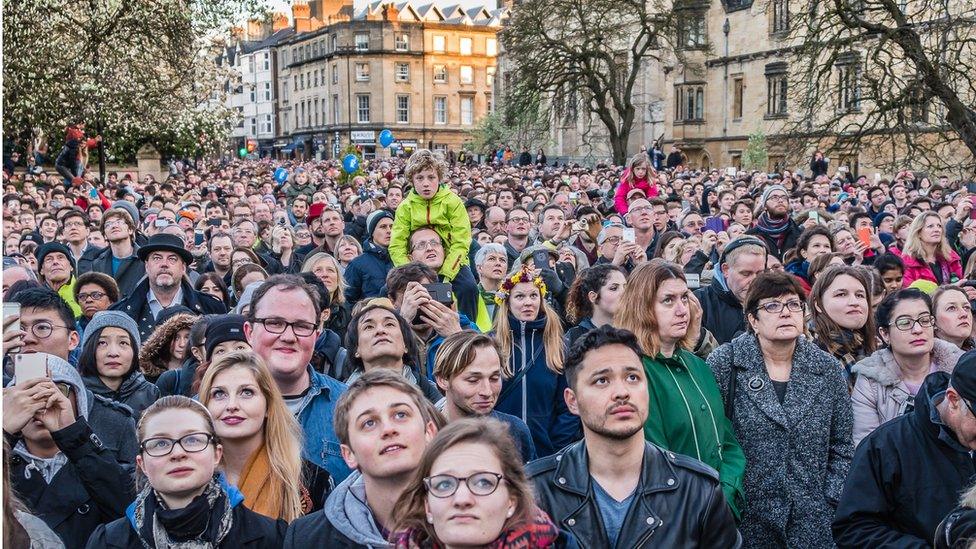Oxford May morning celebrated virtually due to lockdown
- Published
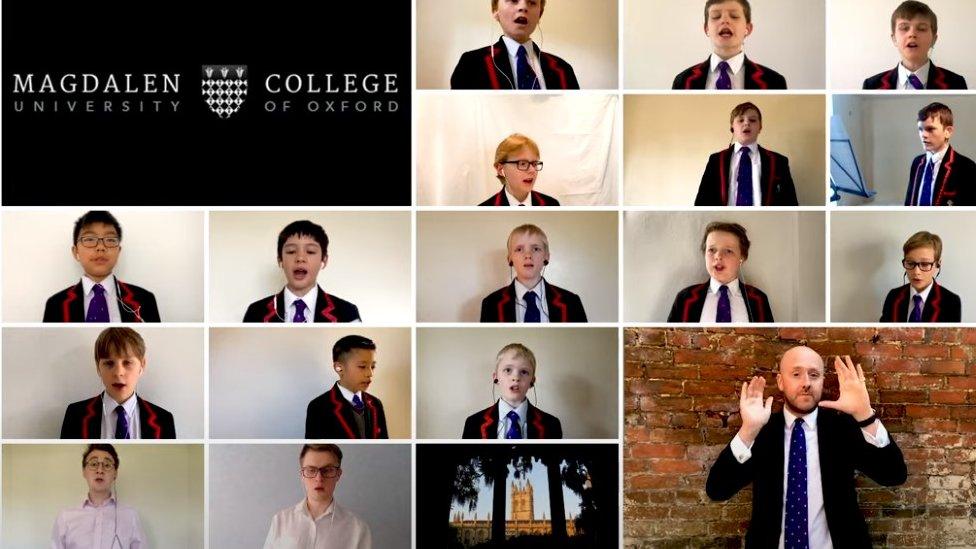
A video of choristers singing Hymnus Eucharisticus was released on social media
The annual centuries-old celebration of May morning in Oxford has taken place virtually due to the coronavirus lockdown.
Thousands of people usually gather outside Magdalen College to hear the bells ring out and choristers sing from the Great Tower early on 1 May.
This year the college released a video on social media, external at 06:00 BST.
The college tower's bells rang as normal, but the Magdalen Bridge below was deserted.
Allow YouTube content?
This article contains content provided by Google YouTube. We ask for your permission before anything is loaded, as they may be using cookies and other technologies. You may want to read Google’s cookie policy, external and privacy policy, external before accepting. To view this content choose ‘accept and continue’.

More than 13,000 people usually attend the celebrations with many students staying up all night and numerous pubs, cafes, and restaurants open early to provide breakfast and refreshments.
There would also be Morris dancing and folk singing in Radcliffe Square, Catte Street and Broad Street.
BBC reporter Martin Eastaugh said: "It was like a Sunday morning with very light commuter traffic."
"The bridge is still open - usually it would be closed and thousands of people crammed below the magnificent Magdalen Tower. There were just two people on the bridge - so very different from 365 days ago."

Magdalen Bridge, where crowds would normally gather, was deserted
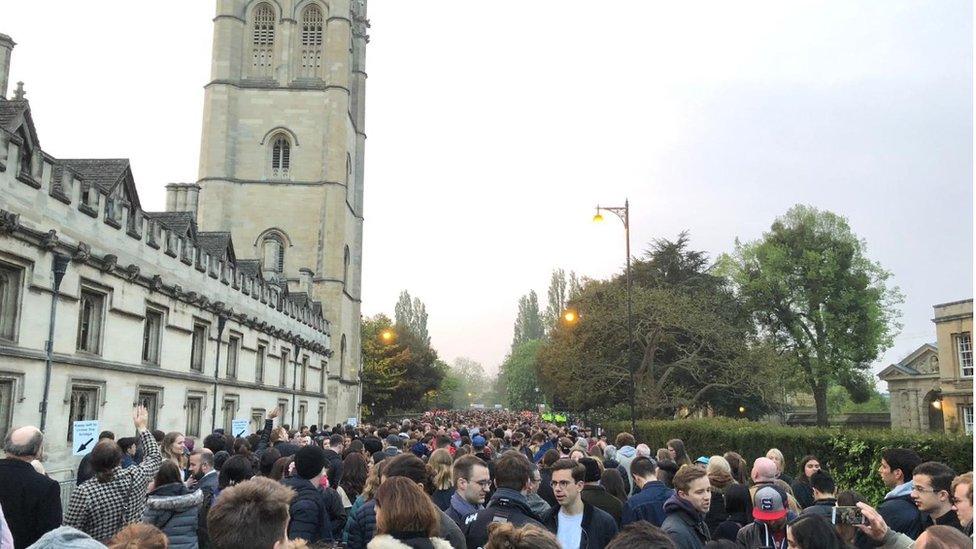
More than 13,000 people attended the 2019 event
Over the past weeks, members of the choir have recorded their parts separately at home before they were edited together.
Informator choristarum Mark Williams said the event was a "unique Oxford tradition".
"Even though we're apart this year, we can still celebrate the coming of spring as we have for the past 500 years.
"It felt rather special. It was nice to have something to get up for and feel it was a celebration in its own way."
Many believe the origins of the May morning celebration date from around 1505 when the Great Tower at Magdalen College was completed and the college chose to sing in the spring.
The event has taken place each year in its current form since the 17th Century when Hymnus Eucharisticus - the song sung by the choir - was written by Benjamin Rogers.
- Published1 May 2019

- Published1 May 2018
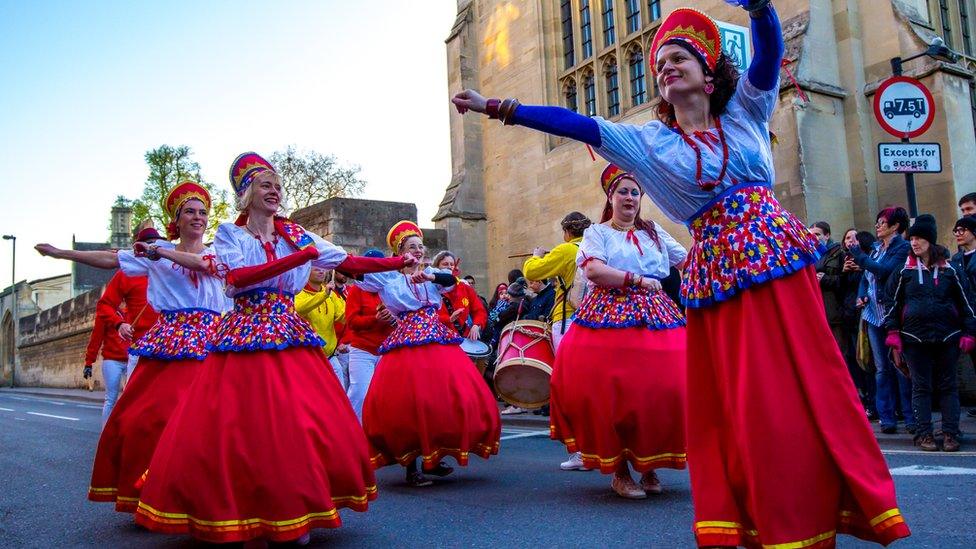
- Published1 May 2018
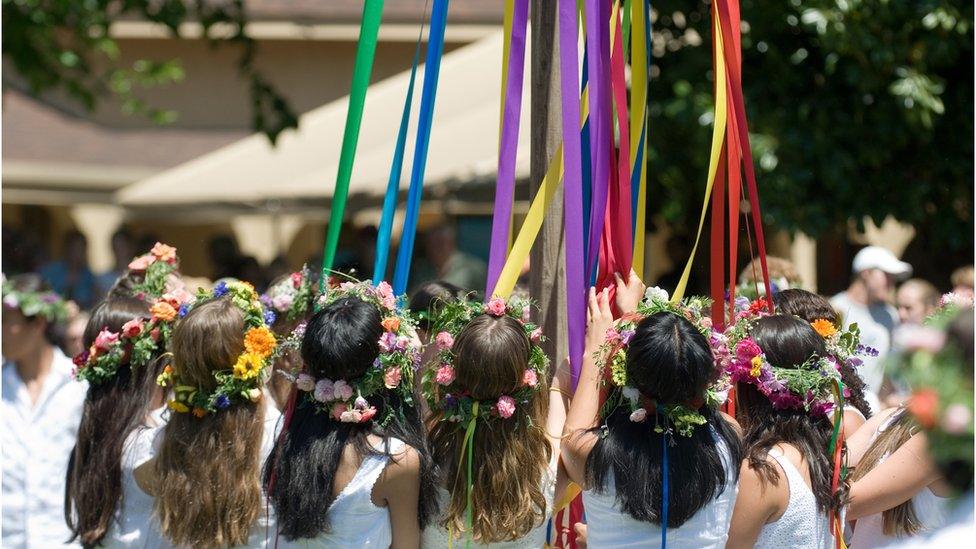
- Published17 April 2018
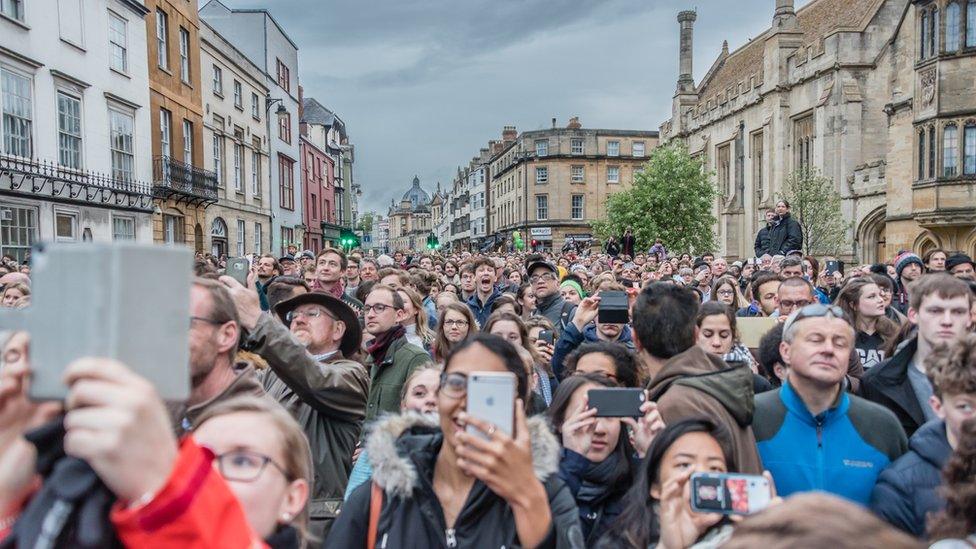
- Published30 April 2017
